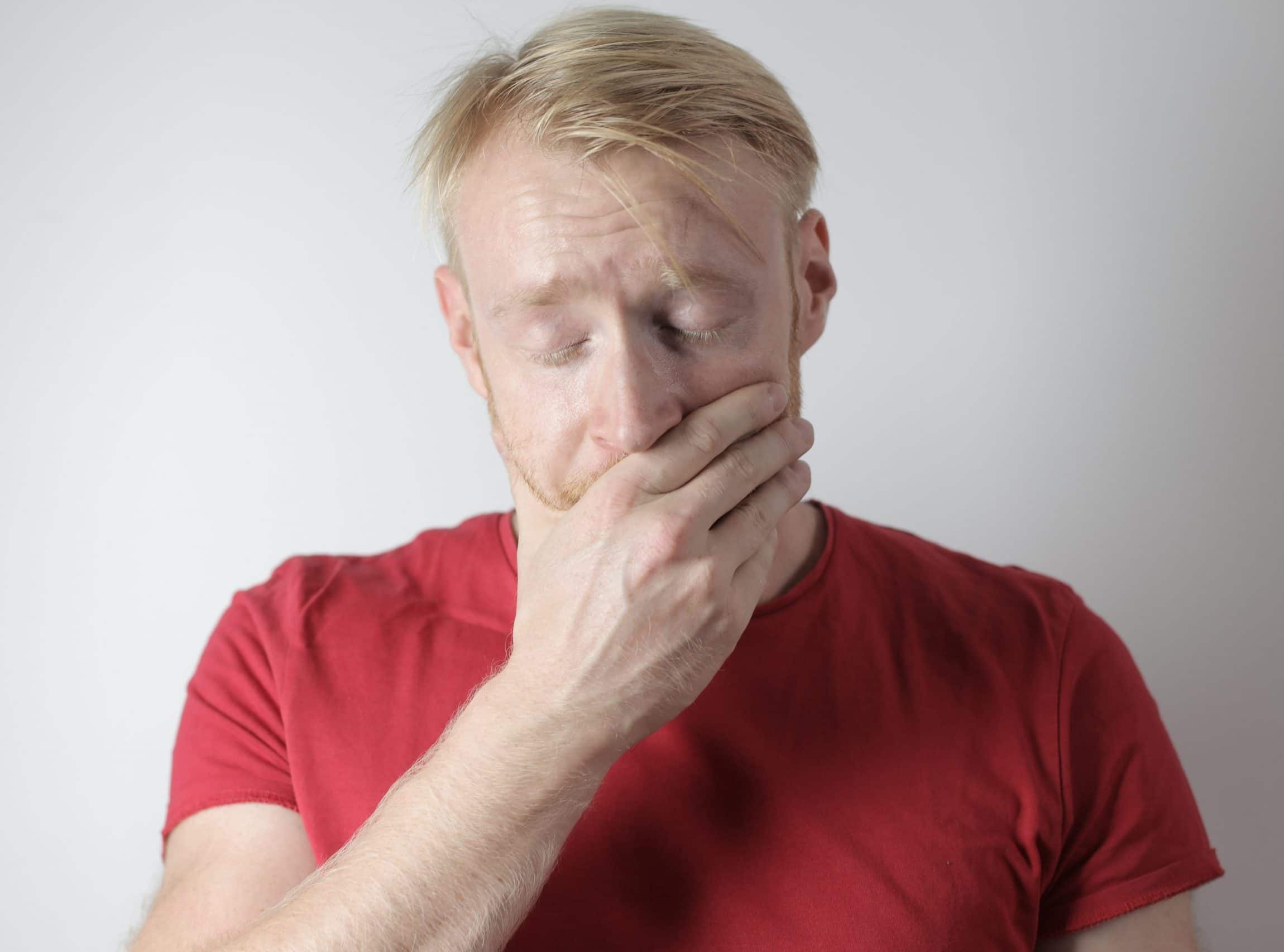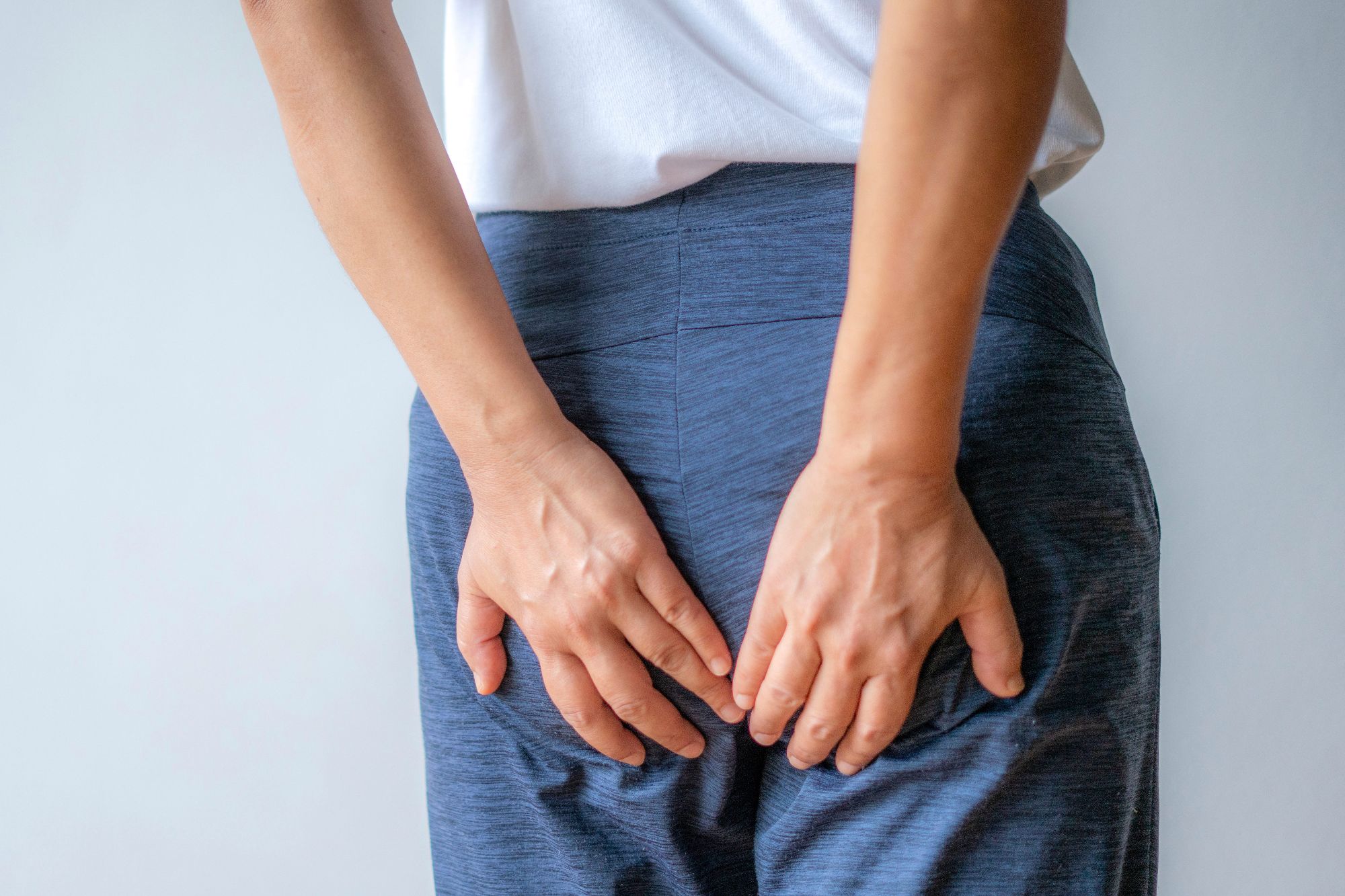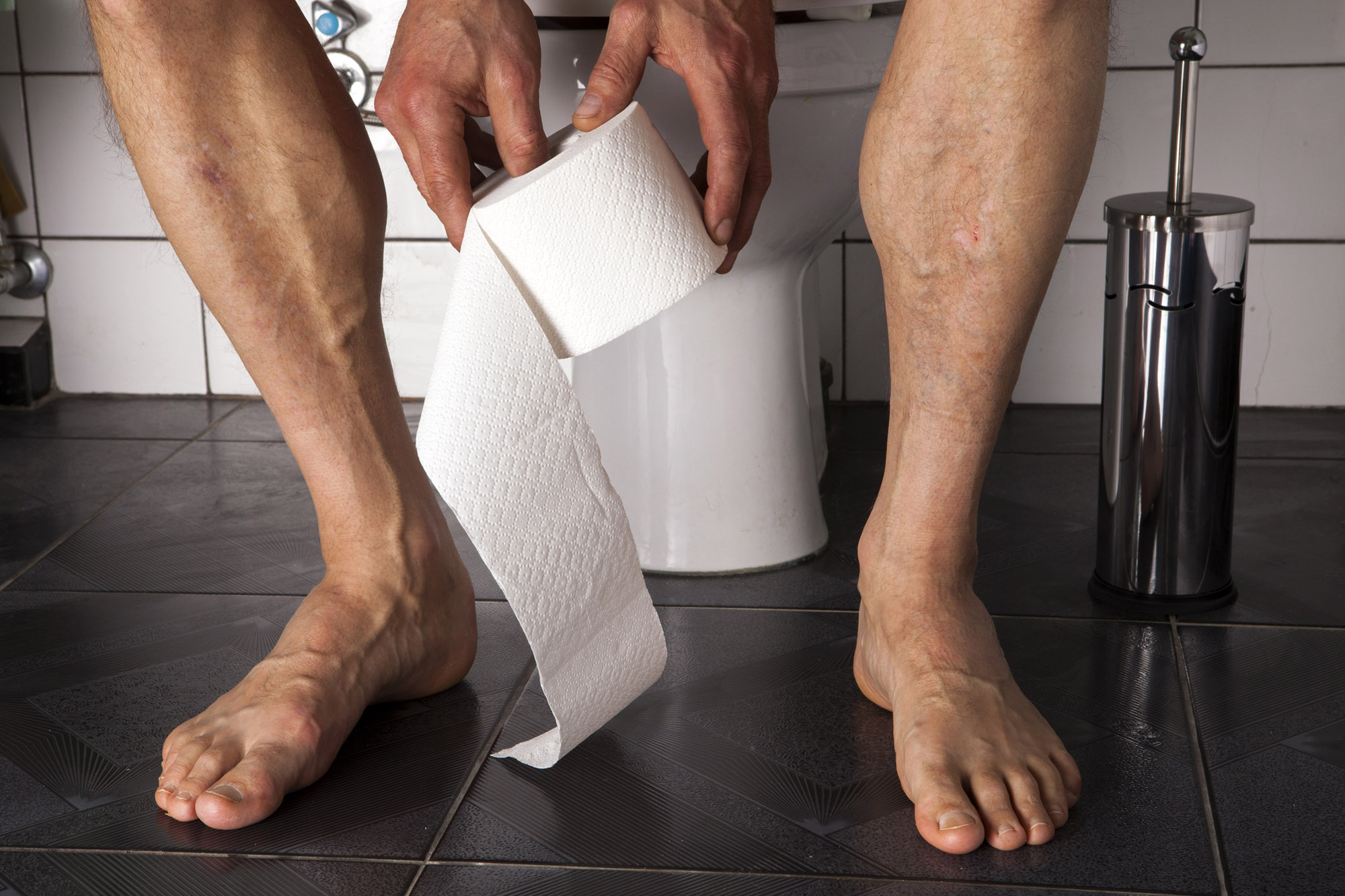

FAQs
It Hurts When I Fart
Modified: September 23, 2023
Find answers to all your general questions about why it hurts when you fart. Discover causes, remedies, and tips to relieve discomfort.
(Many of the links in this article redirect to a specific reviewed product. Your purchase of these products through affiliate links helps to generate commission for Under-tec.com, at no extra cost. Learn more)
Table of Contents
Introduction
Flatulence, or passing gas, is a natural and common bodily function. While it can be embarrassing at times, it’s a normal part of digestion. However, there are instances where passing gas can be accompanied by discomfort or pain. This article aims to explore the causes of painful gas and provide remedies for relief.
Gas is produced in the digestive system when bacteria in the intestines break down food. The body then releases this gas through the rectum, which can result in a variety of sounds and odors. Normally, this process goes unnoticed and causes no discomfort. However, there are situations where excess gas can lead to bloating, cramping, and pain.
Understanding the factors that contribute to painful gas is essential in finding relief. In some cases, the discomfort may be the result of dietary choices, while in others, it may be related to underlying medical conditions or lifestyle factors. By identifying the root cause of the pain, individuals can make informed decisions about their diet, lifestyle, and seek appropriate treatment if necessary.
It’s important to note that occasional gas and discomfort are usually nothing to be concerned about. However, persistent or severe pain should be evaluated by a healthcare professional to rule out any serious underlying conditions. With that in mind, let’s delve into the causes and remedies for painful gas to better understand how to alleviate this discomfort.
Understanding Flatulence
Flatulence, commonly known as passing gas or farting, is the act of expelling gas from the digestive system through the rectum. The gas can consist of various gases, including nitrogen, oxygen, carbon dioxide, methane, and hydrogen. Though it may be considered embarrassing or taboo to discuss, flatulence is a natural and necessary bodily function.
The production of gas in the digestive system is a byproduct of the digestive process. When we eat or drink, the stomach and small intestine break down the food into smaller particles, and enzymes and bacteria aid in further digestion. As a result, gas is produced and accumulates in the intestines.
The release of gas occurs through the rectum via several mechanisms. Firstly, as the gas builds up in the intestines, it creates pressure. Eventually, this pressure exceeds the threshold, and the body automatically releases the gas. Secondly, during digestion, we may swallow air, especially when we eat or drink quickly, chew gum, or consume carbonated beverages. This swallowed air is also expelled as gas.
It’s important to note that the frequency and volume of flatulence can vary from person to person. While some individuals may experience gas more frequently, others may produce more significant volumes of gas due to their diet or digestive function. Additionally, factors such as age, genetics, and overall gut health can influence the rate and amount of gas production.
Flatulence alone is generally not a cause for concern. It becomes an issue when it is accompanied by discomfort, bloating, or pain. Continuing abdominal pain, cramping, or changes in bowel movements may indicate an underlying medical condition that should be evaluated by a healthcare professional.
In the next sections, we will delve into the causes of painful gas and explore remedies that can help alleviate discomfort. By gaining a deeper understanding of this natural process, we can better navigate and manage any issues that arise.
Causes of Painful Gas
Painful gas, also known as trapped gas or bloating, can occur due to various factors. Understanding these causes can help individuals identify the root of their discomfort and take appropriate measures to find relief. Let’s explore some common causes of painful gas.
Dietary Factors
One of the primary culprits behind painful gas is the consumption of gas-producing foods. Certain carbohydrates, such as beans, lentils, broccoli, cabbage, onions, and carbonated drinks, contain sugars and fibers that are not easily digested by the body. As a result, the gut bacteria ferment these undigested carbohydrates, producing gas and causing bloating and discomfort.
Additionally, individuals who are lactose intolerant may experience painful gas after consuming dairy products. Lactose intolerance is the inability to digest lactose, a sugar found in milk and dairy products. When lactose remains undigested, it can cause excessive gas production and abdominal pain.
Medical Conditions
Several medical conditions can contribute to painful gas. Irritable bowel syndrome (IBS), a common disorder affecting the large intestine, can cause bloating, gas, and abdominal pain. Inflammatory bowel disease (IBD), such as Crohn’s disease and ulcerative colitis, can also lead to excessive gas and discomfort.
Another condition that can cause painful gas is gastroesophageal reflux disease (GERD). In GERD, the stomach acid flows back into the esophagus, causing heartburn and bloating. This can result in the sensation of gas being trapped in the chest or abdomen.
Lifestyle Factors
Certain lifestyle factors can contribute to painful gas. Eating too quickly or not chewing food thoroughly can lead to swallowing air, which can contribute to bloating and discomfort. Additionally, smoking and chewing gum can cause individuals to swallow more air, exacerbating the issue.
Sedentary behavior and a lack of physical activity can also contribute to digestive issues, including excessive gas. Regular exercise helps stimulate digestion and promotes healthy bowel movements, reducing the likelihood of gas getting trapped in the digestive system.
In the next sections, we will delve into various remedies that can help alleviate painful gas. By addressing these underlying causes, individuals can find relief and improve their overall digestive health.
Dietary Factors
When it comes to painful gas, dietary factors play a significant role. Certain foods have the potential to cause gas and bloating due to their composition or how they are digested in the body. By understanding which foods to limit or avoid, individuals can manage their gas-related discomfort more effectively.
One common offender is carbohydrates that contain complex sugars and fibers known as oligosaccharides. Examples include beans, lentils, broccoli, cabbage, onions, and Brussels sprouts. These foods are high in raffinose, a compound that the human body cannot break down on its own. As a result, gut bacteria ferment these sugars, producing gas and leading to bloating and discomfort.
Another type of carbohydrate that can contribute to gas production is lactose, found in milk and other dairy products. Individuals who are lactose intolerant lack the necessary enzyme, lactase, to break down lactose. Undigested lactose reaches the large intestine, where it is fermented by bacteria, resulting in gas and bloating.
Other gas-producing foods include carbonated drinks, which release carbon dioxide gas when consumed. Artificial sweeteners like sorbitol and xylitol, found in sugar-free gum and candies, can also cause gas and bloating in some individuals.
While it may be tempting to avoid all gas-producing foods, it is essential to maintain a balanced diet. Instead, individuals can experiment with portion sizes and cooking techniques to minimize the impact of these foods on their digestive system. For example, soaking beans before cooking or consuming them in smaller quantities can help reduce gas production.
Additionally, keeping a food diary can be helpful in identifying trigger foods that contribute to painful gas. By noting symptoms and food intake, individuals can make connections and adjust their diet accordingly.
In the next sections, we will explore various remedies and lifestyle changes that can further assist in relieving painful gas. By making informed choices about diet and the way we eat, individuals can reduce the frequency and severity of gas-related discomfort.
Medical Conditions
While dietary factors and lifestyle choices are often the main contributors to painful gas, there are certain medical conditions that can also play a role. These conditions can affect the digestive system and lead to excessive gas production, bloating, and discomfort. Understanding these conditions can help individuals seek appropriate medical guidance and find relief from their gas-related symptoms.
Irritable Bowel Syndrome (IBS)
Irritable bowel syndrome is a common disorder that affects the large intestine. It is characterized by recurrent abdominal pain, bloating, and changes in bowel habits. While the exact cause of IBS is unknown, it is believed to be related to changes in the gut-brain interaction, increased sensitivity of the intestines, and abnormal intestinal muscle contractions. These factors can contribute to excessive gas production and discomfort.
Inflammatory Bowel Disease (IBD)
Inflammatory bowel disease encompasses conditions such as Crohn’s disease and ulcerative colitis. These chronic conditions cause inflammation in the digestive tract, leading to symptoms like abdominal pain, diarrhea, and bloating. The inflammation and damage to the intestines can disrupt the normal digestion and absorption of food, resulting in excessive gas production.
Gastroesophageal Reflux Disease (GERD)
Gastroesophageal reflux disease occurs when the stomach acid flows back into the esophagus, causing heartburn and other symptoms. Along with the typical symptoms of GERD, such as acid reflux and chest pain, individuals may also experience bloating and the sensation of trapped gas in the chest or abdomen.
Other medical conditions that can contribute to excessive gas include small intestinal bacterial overgrowth (SIBO), celiac disease, and lactose intolerance. It is important for individuals experiencing chronic or severe symptoms to consult with a healthcare professional for proper diagnosis and management of their condition.
In the next sections, we will explore various remedies and lifestyle changes that can assist in relieving painful gas associated with these medical conditions. By understanding the underlying cause of their symptoms, individuals can better manage their condition and find relief from gas-related discomfort.
Lifestyle Factors
Aside from dietary choices and medical conditions, lifestyle factors can also contribute to painful gas. Certain habits and behaviors can disrupt the normal digestion process and lead to the accumulation of gas in the digestive system. By making positive changes to lifestyle habits, individuals can reduce gas-related discomfort and promote better digestive health.
Eating Habits
The way we eat can have a significant impact on how our body digests food and handles gas. Eating too quickly or not chewing food thoroughly can result in swallowing air, leading to bloating and gas. Taking the time to chew food properly allows for adequate saliva production, which contains enzymes that help break down food more efficiently.
Additionally, large meals can put a strain on the digestive system and contribute to excessive gas production. Eating smaller, more frequent meals can improve digestion and reduce the likelihood of gas getting trapped in the intestines.
Sedentary Lifestyle
Leading a sedentary lifestyle can also contribute to digestive issues, including excess gas. Lack of physical activity slows down digestion and can cause the muscles in the intestines to become sluggish. Incorporating regular exercise into your routine can help stimulate digestion and promote healthy bowel movements, reducing the likelihood of gas accumulating in the digestive system.
Smoking and Chewing Gum
Smoking and chewing gum can contribute to excess gas by causing individuals to swallow more air. Smoking not only introduces air into the digestive system but can also irritate the gastrointestinal tract, leading to bloating and discomfort. Similarly, chewing gum can cause individuals to swallow air while they chew, increasing the likelihood of gas build-up.
Finally, managing stress levels is crucial, as high levels of stress can disrupt the normal functioning of the digestive system. Stress can lead to changes in gut motility and increase the risk of gas and bloating. Engaging in stress-relieving activities such as meditation, exercise, or hobbies can help promote better digestive health.
By adopting healthier eating habits, maintaining an active lifestyle, avoiding smoking and excessive gum-chewing, and managing stress, individuals can significantly reduce painful gas and improve their overall digestive well-being.
Remedies for Relieving Painful Gas
Dealing with painful gas can be uncomfortable and disruptive to daily life. Thankfully, there are several remedies and strategies that can help alleviate gas-related discomfort. Whether it’s through over-the-counter medications, home remedies, dietary changes, or lifestyle adjustments, finding the right approach can provide much-needed relief.
Over-the-Counter Medications
Over-the-counter medications can be effective in providing temporary relief from painful gas. Antacids, such as simethicone, work by breaking down gas bubbles in the stomach, making it easier to pass gas and alleviate bloating. These medications can be taken as directed and are generally safe for short-term use.
Home Remedies
Several home remedies can help alleviate gas-related discomfort. Drinking herbal teas, such as peppermint or chamomile, can help relax the muscles of the gastrointestinal tract and reduce gas. Applying a heating pad or warm compress to the abdomen can also help soothe discomfort and promote digestion.
Engaging in physical activity, such as walking or gentle yoga, can help stimulate digestion and relieve gas. Additionally, practicing deep breathing exercises can help relax the muscles and reduce the sensation of trapped gas.
Dietary Changes
Making mindful dietary changes can go a long way in managing painful gas. It’s important to identify and avoid foods that are known to contribute to gas production, such as beans, lentils, broccoli, cabbage, onions, and carbonated drinks. Gradually introducing these foods back into the diet in smaller portions or choosing alternative cooking methods can help reduce gas-related symptoms.
Moderating intake of foods high in lactose or artificial sweeteners can also be beneficial for those with lactose intolerance or sensitivity to certain sweeteners.
Lifestyle Changes
Adopting certain lifestyle changes can support healthy digestion and minimize gas-related discomfort. Eating meals at a slower pace, chewing food thoroughly, and avoiding eating large meals can help prevent excessive gas production.
Engaging in regular physical activity, such as walking or cycling, can promote efficient digestion and prevent gas accumulation. Stress management techniques, such as practicing mindfulness, deep breathing exercises, or engaging in hobbies, can also help reduce stress-related digestive symptoms.
It’s important to note that while these remedies can provide relief for occasional gas and bloating, persistent or severe symptoms should be evaluated by a healthcare professional. They can provide a proper diagnosis and recommend appropriate treatment for underlying medical conditions.
By incorporating these remedies into a well-rounded approach, individuals can find relief from painful gas and improve their overall digestive health.
Over-the-Counter Medications
Over-the-counter medications can be a convenient and effective option for relieving painful gas. These medications are readily available without a prescription and can provide temporary relief from gas-related discomfort and bloating. Here are some commonly used over-the-counter medications for managing painful gas:
Antacids
Antacids are a common choice for relieving gas and bloating. They work by neutralizing stomach acid and breaking down gas bubbles in the stomach, making it easier to pass gas and alleviate discomfort. One of the main active ingredients in antacids is simethicone, a compound that helps to disperse gas and reduce its accumulation in the digestive system. These medications typically come in the form of chewable tablets or liquids and can be taken as directed on the packaging.
Activated Charcoal
Activated charcoal is another over-the-counter remedy used for gas and bloating. It is believed to work by absorbing excess gas in the digestive system. Activated charcoal is available in capsule or powder form. It is important to follow the recommended dosage and take it with plenty of water to avoid dehydration.
Enzyme Supplements
Enzyme supplements, such as alpha-galactosidase, can aid in the breakdown of certain complex carbohydrates found in gas-producing foods. These supplements can help improve digestion and reduce gas production. They are typically taken orally before meals to assist in the digestion of specific food components.
It’s important to note that while over-the-counter medications can provide temporary relief, they are not a long-term solution for addressing the underlying causes of painful gas. If symptoms persist or worsen, it is advisable to consult with a healthcare professional. They can provide a proper diagnosis and recommend appropriate treatment options based on individual circumstances.
It’s also essential to follow the instructions and dosage guidelines provided with these medications. If you have any underlying medical conditions or are taking other medications, it’s best to consult with a pharmacist or healthcare professional to ensure the safe and appropriate use of over-the-counter remedies.
Over-the-counter medications can be a useful tool for managing occasional gas and bloating. However, a holistic approach that includes dietary changes, lifestyle modifications, and seeking medical advice when necessary is crucial for long-term management of painful gas and overall digestive health.
Home Remedies
When it comes to managing painful gas, there are several effective home remedies that can provide relief. These remedies are often easily accessible and can be used in combination with other strategies to alleviate gas-related discomfort. Here are some commonly used home remedies for relieving painful gas:
Herbal Teas
Herbal teas have long been used to soothe digestive discomfort, including gas and bloating. Peppermint tea, in particular, is known for its calming effect on the muscles of the gastrointestinal tract, helping to reduce gas and alleviate bloating. Chamomile tea is another popular choice, as it has anti-inflammatory properties that can help soothe the digestive system.
Heat Therapy
Applying heat to the abdomen can help relax the muscles and relieve painful gas. A heating pad or warm compress can be placed on the stomach for 10-15 minutes to provide soothing relief. The warmth helps to increase blood flow to the area, promoting better digestion and reducing gas-related discomfort.
Physical Activity
Engaging in physical activity can help stimulate digestion and relieve gas. Simple exercises such as walking, gentle yoga poses, or abdominal massages can encourage the movement of gas through the digestive system, promoting its release. Regular exercise also helps to improve overall digestion and prevent gas from accumulating.
Deep Breathing Exercises
Deep breathing exercises can help relax the muscles and reduce the sensation of trapped gas. One technique involves taking slow, deep breaths through the nose, allowing the abdomen to expand with each inhalation, and then slowly exhaling through the mouth. This can help promote relaxation and relieve gas-related discomfort.
It’s important to note that while home remedies can provide temporary relief, they are not a substitute for addressing the underlying causes of painful gas. If symptoms persist or worsen, it is advisable to seek medical advice. Additionally, if you have any pre-existing medical conditions or are on medication, it’s essential to consult with a healthcare professional before trying any home remedies.
By incorporating these home remedies into a comprehensive approach that includes dietary changes, lifestyle modifications, and seeking medical guidance when necessary, individuals can find effective relief from painful gas and improve their overall digestive health.
Dietary Changes
Making specific dietary changes can play a significant role in managing and preventing painful gas. By identifying and modifying problematic foods, individuals can reduce gas production, bloating, and discomfort. Here are some dietary changes that can help alleviate gas-related symptoms:
Avoid Gas-Producing Foods
Certain foods are known to cause gas due to their composition or how they are digested in the body. Examples include beans, lentils, broccoli, cabbage, onions, and carbonated drinks. These foods contain sugars, fibers, or compounds that are not easily broken down by the body, leading to increased gas production. Limiting or avoiding these gas-producing foods can help alleviate discomfort.
Manage Lactose Intolerance
If you are lactose intolerant, it’s important to manage your lactose intake to prevent painful gas. Lactose is a sugar found in milk and dairy products. Individuals with lactose intolerance have insufficient lactase, the enzyme responsible for breaking down lactose. This can lead to excessive gas production and discomfort. Choosing lactose-free or dairy alternatives, such as almond or soy milk, can help manage symptoms.
Alternative Cooking Methods
Changing the way you cook certain foods can also help reduce gas production. For example, soaking beans before cooking them can help remove some of the gas-producing substances. Additionally, utilizing spices and herbs such as ginger, fennel, or cumin, which have digestive properties, can aid in the breakdown of food and reduce gas-related symptoms.
Keep a Food Diary
Keeping a food diary can be helpful in identifying trigger foods that contribute to painful gas. Note down the foods you consume and any symptoms you experience afterward. Over time, you may start to see patterns and make connections between certain foods and your gas-related symptoms. This can guide you in making more informed dietary choices and avoiding foods that cause discomfort.
It’s important to remember that everyone’s digestive system is unique, and what works for one person may not work for another. It may take some trial and error to identify the specific dietary changes that provide relief. If symptoms persist or worsen, it is advisable to consult with a healthcare professional or a registered dietitian who can provide individualized guidance.
By making mindful dietary changes and being aware of your body’s reactions, you can effectively manage and reduce painful gas, enhancing your overall digestive well-being.
Lifestyle Changes
In addition to dietary modifications, certain lifestyle changes can contribute to the prevention and relief of painful gas. By adopting healthier habits and practices, individuals can promote better digestion and reduce the occurrence of gas-related discomfort. Here are some lifestyle changes that can be beneficial:
Eating Habits
Paying attention to eating habits is crucial in preventing painful gas. Eating meals at a slower pace and chewing food thoroughly can help reduce the amount of air swallowed during meals, consequently minimizing the risk of gas and bloating. Additionally, consuming smaller, more frequent meals throughout the day can aid in digestion and prevent excessive gas production.
Regular Physical Activity
Engaging in regular physical activity can support healthy digestion and reduce the occurrence of painful gas. Exercise helps stimulate the muscles of the gastrointestinal tract, promoting efficient movement of food and gas through the digestive system. Incorporating activities such as brisk walking, jogging, or yoga into your routine can help prevent gas from getting trapped and alleviate discomfort.
Stress Management
Stress can negatively impact digestion and contribute to gas-related symptoms. Finding effective stress management techniques, such as meditation, deep breathing exercises, or engaging in hobbies, can help reduce stress levels and promote better digestive health. Taking time for relaxation and self-care can have a positive impact on overall well-being and alleviate gas-related discomfort.
Avoiding Smoking and Chewing Gum
Smoking and chewing gum can contribute to excessive gas by causing individuals to swallow more air. Avoiding smoking and limiting gum-chewing can help prevent excessive air intake and reduce the likelihood of gas-related discomfort. Making these small changes can have a significant impact on reducing gas production and bloating.
Remember, lifestyle changes require consistency and may take time to yield noticeable results. It’s important to listen to your body and make adjustments that work best for you. If implementing lifestyle changes does not provide relief or if symptoms worsen, consult with a healthcare professional for further evaluation and guidance.
By adopting a well-rounded approach that includes dietary modifications, regular physical activity, stress management, and avoiding gas-inducing habits, individuals can prevent and manage painful gas, promoting better digestive health and overall well-being.
When to See a Doctor
In most cases, occasional gas and bloating are normal and can be managed through dietary and lifestyle changes. However, there are instances where seeking medical attention is necessary. Here are some indicators of when to consult a doctor for gas-related symptoms:
Persistent or Severe Symptoms
If you experience persistent or severe gas-related symptoms, it is important to seek medical advice. This includes ongoing bloating, abdominal pain, cramping, or changes in bowel movements that negatively impact your daily life. These symptoms may indicate an underlying medical condition that requires diagnosis and treatment.
Accompanying Symptoms
If gas-related symptoms are accompanied by other concerning symptoms, it is advisable to consult a doctor. These symptoms may include unexplained weight loss, blood in the stool, persistent diarrhea or constipation, vomiting, or difficulty swallowing. These additional symptoms may indicate a more serious underlying condition that requires medical attention.
Existing Medical Conditions
If you have an existing medical condition such as irritable bowel syndrome (IBS), inflammatory bowel disease (IBD), or gastroesophageal reflux disease (GERD), it is important to regularly monitor your symptoms and consult with your healthcare provider. They can provide guidance on managing gas-related symptoms alongside your existing condition and ensure appropriate treatment is in place.
Unsure about Self-Diagnosis
If you are unsure about the cause of your gas-related symptoms or have concerns about your digestive health, it is always best to seek medical advice. A healthcare professional can perform a thorough evaluation, consider your medical history, and order any necessary tests to determine the underlying cause of your symptoms.
Remember that everyone’s digestive system is unique, and what works for one person may not work for another. A qualified healthcare professional can provide personalized advice and guidance based on your specific circumstances.
By promptly seeking medical attention when warranted, you can ensure early detection and appropriate management of any underlying conditions, leading to improved digestive health and overall well-being.
Conclusion
Painful gas can be a bothersome and uncomfortable issue, but with the right approach, it can be effectively managed. By understanding the factors that contribute to gas-related discomfort, individuals can take proactive steps to alleviate symptoms and improve their digestive health.
Dietary changes, such as avoiding gas-producing foods and managing lactose intolerance, can significantly reduce gas production and bloating. Similarly, adopting lifestyle changes like practicing mindful eating, engaging in regular physical activity, and managing stress levels can promote healthy digestion and minimize gas-related symptoms.
There are also over-the-counter medications and various home remedies that can provide temporary relief from painful gas. However, it’s important to remember that these remedies should not replace a proper diagnosis and treatment for underlying medical conditions. If symptoms persist or worsen, it is advisable to seek the guidance of a healthcare professional.
Each individual’s digestive system is unique, and what works for one person may not work for another. It may take some time and trial and error to find the strategies that are most effective in relieving gas-related discomfort. Keeping a food diary, seeking medical advice when needed, and being patient with the process can lead to long-term relief and improved digestive well-being.
Overall, by being mindful of your diet, lifestyle habits, and seeking medical guidance when necessary, you can effectively manage and prevent painful gas, leading to better digestive health and an improved quality of life.










